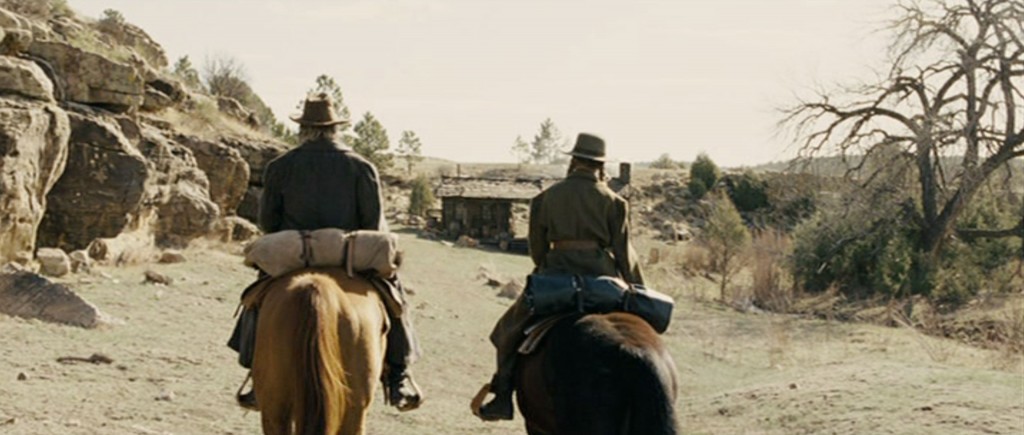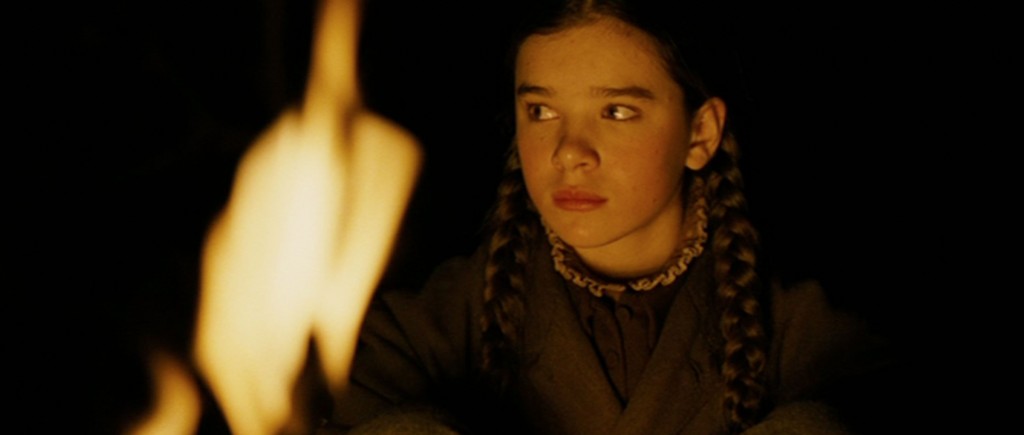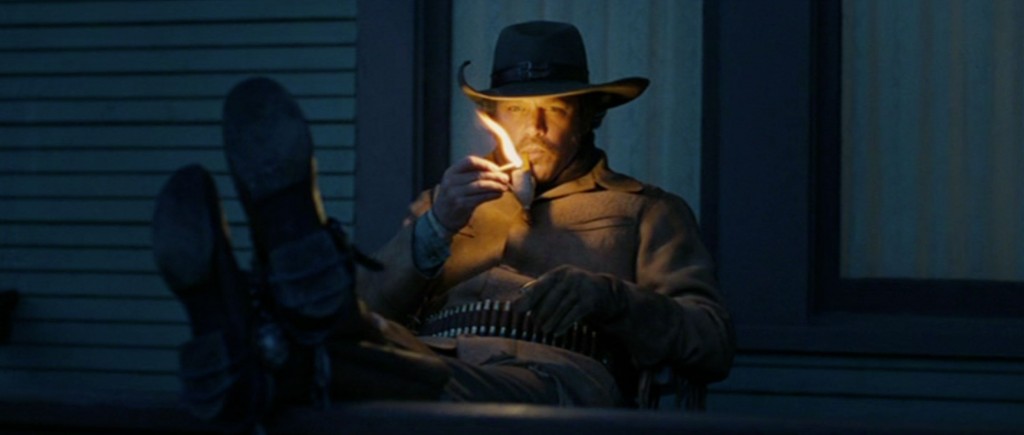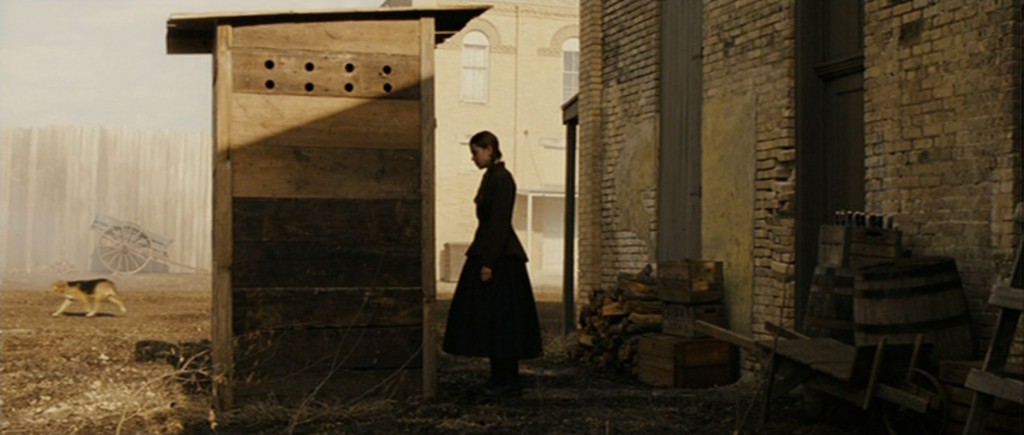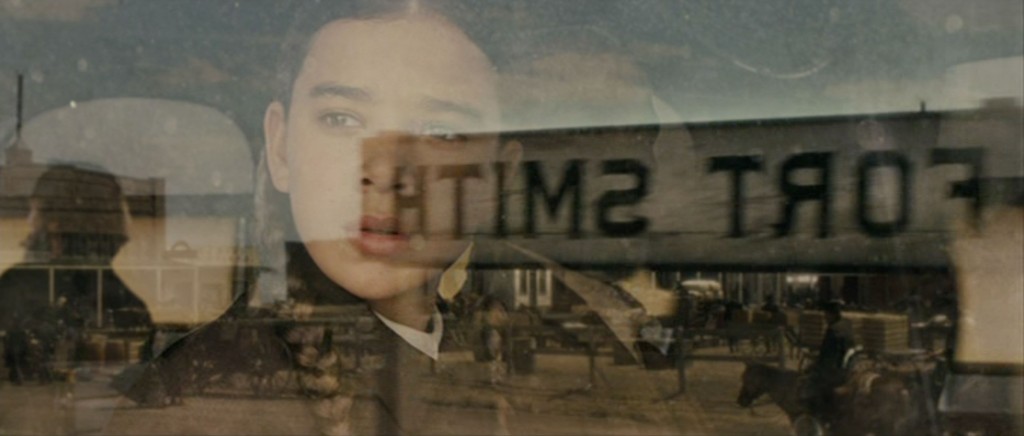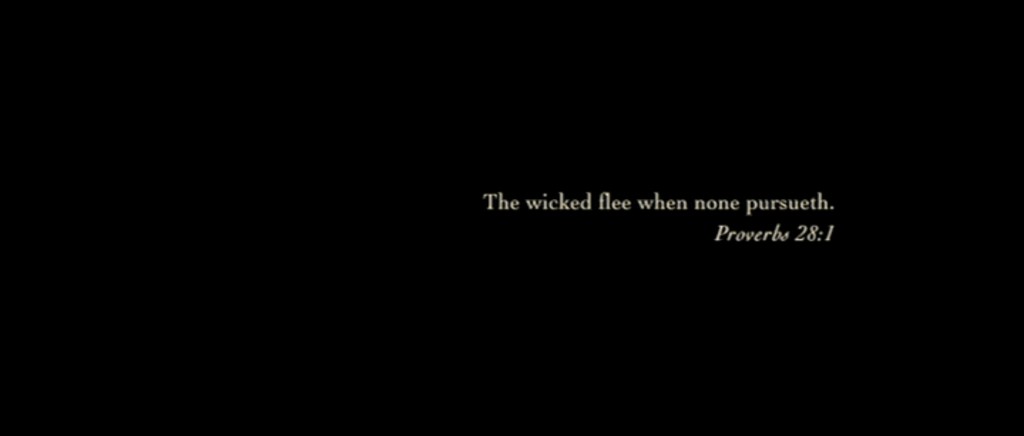True Grit part 6
Faithful reader Bob Glouberman writes:
It seems to me that LaBoeuf isn’t auditioning for the role of father but for the role of suitor, and spurned suitor at that. He is constantly trying to impress her so he can steal a kiss from her. When he showed her his star on their first meeting he was trying to impress her as a suitor not as a father. And when he spanked her, he did so more as a peer and spurned lover. When he leaves Mattie later in the movie, it’s a scene of lovers leaving each other for the last time. If he’s auditioning for the role of father, it’s a creepy molesting kind of father.
I see what Mr. Glouberman is getting at here, although if LaBoeuf wishes to be lover to a 14-year-old girl, and demonstrates his love by whipping her with a stick, he’s got a whole other set of problems.
On the other hand, perhaps he’s right. Perhaps both LaBoeuf and Rooster are auditioning for the honor of Mattie’s hand. Although if they are, Rooster isn’t trying very hard – he’s cagey, inward, egotistical and disinterested. Not to mention about 45 years too old for her. Which, hey, is exactly what some girls look for in a man.
True Grit part 5
Every serious Western, from Stagecoach to Unforgiven, asks the question “What kind of a nation are we?” The genre is, of course, ideally suited to this. It’s the first genre to be invented in the US, and it speaks most purely to the “soul,” as it were, of America. In the Western, the nation is still new, the frontier is open, it’s all up for grabs, and things aren’t yet settled. The genre can, and does, say many different things about the US. A Western can laud American ideals, it can mourn the closing of the frontier, it can stand up for law and order, it can protest against tyranny, it can champion the little guy, it can indict mob mentality, it can celebrity individuality, it can condemn genocide, it can explore race relations. Americans watch Westerns, I think, in order to learn about who they are. The Old West is a land where everything is still possible.
(What the Western says depends, of course, on who is doing the telling and what they’re trying to say about the time in which they’re making their movie. High Noon isn’t about the Old West, it’s about McCarthyism.)
True Grit: part 4
Mattie has approached Rooster Cogburn about pursuing Tom Chaney, the man who killed her father, into the wilderness of the Choctaw Nation. Rooster has turned her down, but that doesn’t mean much to someone like Mattie.
On her way back to the boarding house, she finds a mysterious, vaguely threatening stranger waiting for her. He glowers at her from the porch, then camps out in her bedroom. This turns out to be LaBoeuf, a Texas Ranger who is also looking for Chaney, who, in addition to killing Mattie’s father, has also killed a Texas state senator.
True Grit part 3
Spoilers.
Mattie Ross wants to see Tom Chaney dead. If possible, she’d like to kill him herself. Her second choice is to see him hanged by the intolerant Judge Parker. To make these things happen, she needs a federal marshal to catch him. She selects Rooster Cogburn because the sheriff has assured her that he is the meanest bastard available.
True Grit part 2
Spoilers, obviously.
Mattie Ross arrives in Fort Smith, Arkansas, with her “chaperone” Yarnell (who appears to be a loyal, trusted servant in the Ross home). She has come to fetch her father’s body.
At least that’s what she has told the folks back home. Mattie, in fact, has other things on her mind. She has traveled from Dardenelle to Fort Smith with a darker purpose in her heart. She means to hunt down and kill Tom Chaney, the man who killed her father. She seeks what she calls “justice,” but which we might label “revenge.” (The poster for the movie promises “retribution,” which implies justice of the divine kind.)
True Grit part 1
I urge the reader to see the movie before reading further. Spoilers, of necessity, follow.
“The wicked flee when none pursueth,” states the epigram, then informs the viewer where to find the quote. If you look up the quote, there is another half to it. “But the righteous are as bold as a lion.”
What does this mean? It’s not about flight and boldness, exactly, but about wickedness and righteousness.
